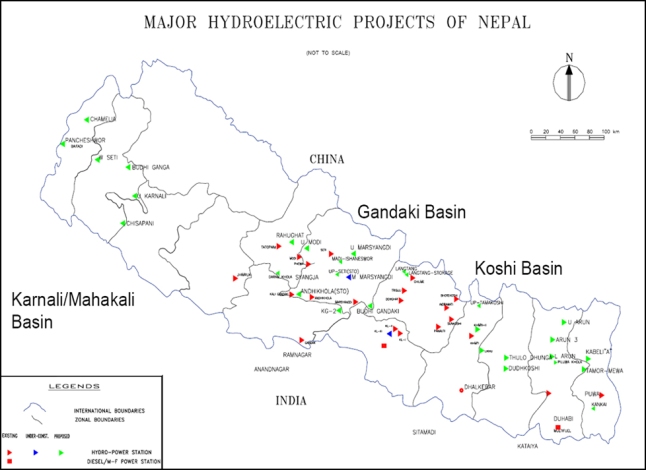‘Hydro’ or water power refers to the energy of the movement of water being converted into electricity. The general process is power generation by use of water. Hydroelectricity is one of the most mature forms of renewable energy, providing 19% of the world’s electricity consumption from both large and small power plants. The most common type of hydropower uses dam or reservoir for water holding still there are run-off type of project too. Hydro electric power is based on the principle of using falling water to spin a shaft connected to an electric generator. The greater the fall of water, the more power it has to spin. The greater the quantity of water, the greater the number and size of the shafts that may spun and the greater the electricity output. The amount of power produced depends upon following factors:
-
The Flow [quantity of water passing]
-
The Head available [Vertical distance of water can be made fall]
Advantages of Hydropower
-
Non- polluting, clean and environment friendly
-
A renewable source of energy
-
Cost of generation, operation and maintenance is lower than the other sources of energy
-
Ability to start and stop quickly and immediate load acceptance/rejection makes it suitable to meet peak demand and for enhancing system reliability and stability
-
Long operating life
-
Cost of generation is free from inflationary effects after the initial installation
-
Storage based hydro schemes provide benefits of flood control, irrigation, drinking water supply, navigation, recreation, tourism and aquaculture, and
-
Opening of avenues for development of remote and backward areas

